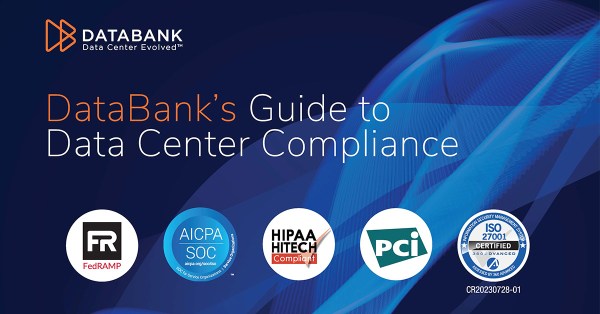Colocation can be a highly strategic solution for financial institutions. It’s more scalable than on-premises data centers but offers the same level of privacy. Here is a brief guide to what you need to know about colocation for financial institutions.
Financial data security in colocation
Here are five specific ways colocation solutions address the security needs of financial institutions.
Physical security measures
Colocation facilities implement robust physical security right from their perimeters. Facilities are typically divided into zones, (both external and internal). These have individual perimeters, usually in the form of physical barriers. The access points between zones are controlled by sophisticated authentication mechanisms, often including biometric ones.
The entire facility (outside and inside) will be protected by monitoring and surveillance systems. Monitoring systems typically comprise sensors that detect a particular stimulus (e.g. movement) connected to alarms. Surveillance systems can be used to perform an initial response to an alert from a monitoring system. They are also a robust deterrent in their own right.
Moreover, colocation facilities implement robust environmental controls to safeguard hardware and the data on it. These generally include fire suppression systems, temperature monitoring, and leak detection mechanisms.
Network security
Likewise, colocation providers implement robust network monitoring to ensure that any threats are promptly detected and addressed. As with physical security, this is generally done through a combination of automated tools and human oversight.
The key automated tools are firewalls, intrusion prevention systems, and intrusion detection systems. Firewalls evaluate traffic as it passes through the perimeter of the network. IPS and IDSs both evaluate traffic within the network. IPSs can proactively defend against threats. IDSs can only alert to threats but generally undertake more in-depth checks than IPSs.
Redundancy and disaster recovery
Redundancy is achieved through duplicate hardware components, ensuring that critical systems have backup counterparts ready to seamlessly take over in the event of a failure. This redundancy extends to power sources, networking equipment, and storage devices, minimizing the risk of service interruptions.
In terms of disaster recovery, colocation facilities deploy geographically dispersed data centers to diversify risk. In the face of a catastrophic event or regional outage, data can be swiftly and seamlessly redirected to an alternate location. Additionally, robust backup systems and continuous data replication mechanisms contribute to the quick restoration of operations.
24/7 monitoring and support
Advanced monitoring systems continually track network performance, server health, and security metrics in real time. Automated alerts promptly notify administrators of any anomalies or potential security breaches, enabling swift response and mitigation.
These monitoring tools are complemented by skilled support teams available around the clock. Technicians equipped with deep technical expertise can address issues promptly. This minimizes downtime and ensures uninterrupted service.
Security audits
Colocation providers regularly conduct thorough security audits, employing advanced vulnerability assessment tools to identify potential weaknesses in the infrastructure. These audits delve into every layer of the technology stack, assessing configurations, access controls, and encryption protocols. They also regularly evaluate and, where relevant, update their physical security.
Compliance with financial regulations
Here are five specific measures taken by colocation providers to ensure compliance with financial regulations.
Obtaining compliance certifications
Probably the most obvious way that colocation providers ensure compliance with financial regulations is to obtain compliance certifications. This shows that their facilities meet all the relevant requirements for data center infrastructure. The client takes responsibility for ensuring the compliance of their own equipment and data.
Undertaking regular compliance audits
Regular compliance audits are mandated by many data security standards and frameworks. Even when they are not, they are still very much the best practice. Not only do they allow vulnerabilities to be identified but they also facilitate the process of continuous improvement.
Policy development and documentation
Colocation providers must establish and document detailed security policies and procedures. This involves defining technical controls, specifying encryption standards, and detailing access management protocols.
Policies are regularly updated to address emerging threats and align with evolving industry regulations. The documentation process is comprehensive, covering all facets of security protocols, incident response plans, and technical configurations.
Documentation and record-keeping
Colocation providers meticulously document security policies, incident response procedures, and audit trails. They also maintain technically precise and up-to-date records of system configurations, access logs, and any security incidents. This documentation serves multiple purposes. One of these is to demonstrate thorough record-keeping during compliance audits.
Collaboration with regulatory bodies
Colocation providers actively engage with regulatory authorities, participating in technical discussions, and providing insights into security measures.
This collaborative approach ensures a deep understanding of the technical nuances of emerging regulations. Colocation providers leverage this technical insight to align their facilities with evolving industry standards.
Regular communication with regulatory bodies also facilitates a feedback loop, enabling providers to enhance technical measures based on regulatory guidance.







